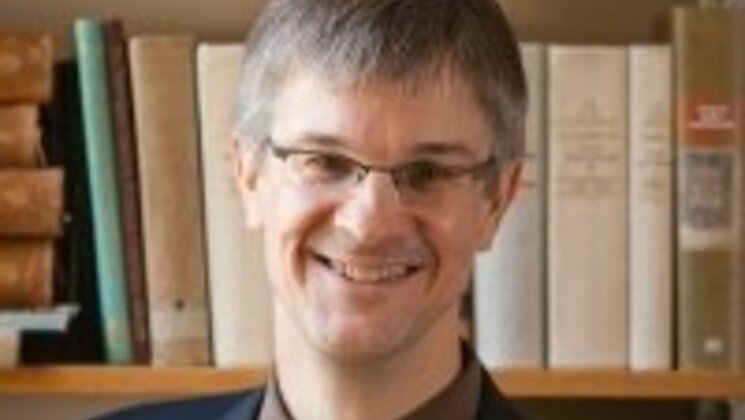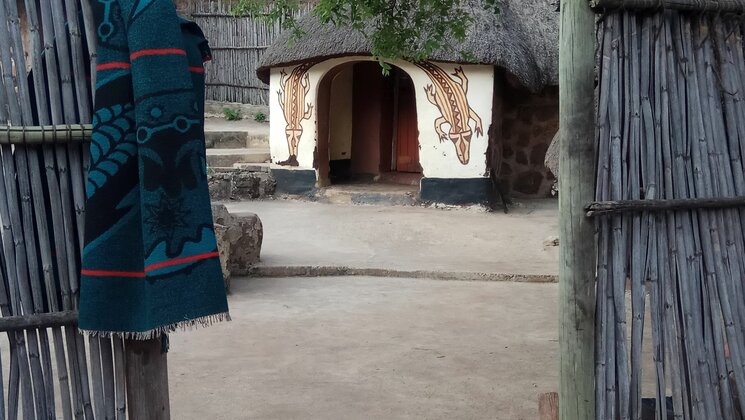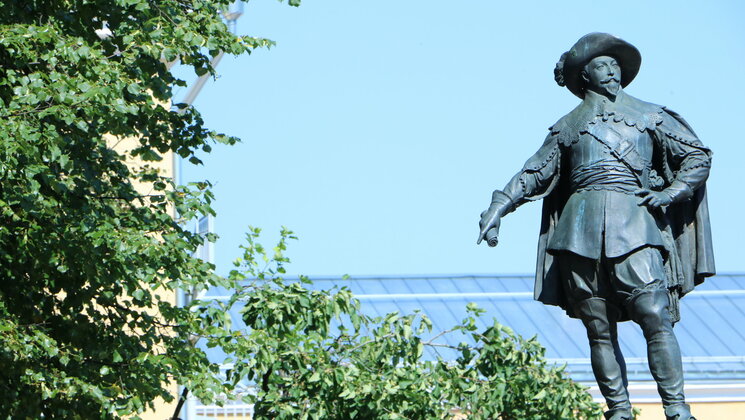Guest lectures exploring local character stories and legal encounters on intangible cultural heritage on May 2
Normal 0 21 false false false ET X-NONE X-NONE /* Style Definitions */ table.MsoNormalTable {mso-style-name:"Table Normal"; mso-tstyle-rowband-size:0; mso-tstyle-colband-size:0; mso-style-noshow:yes; mso-style-priority:99; mso-style-parent:""; mso-padding-alt:0cm 5.4pt 0cm 5.4pt; mso-para-margin-top:0cm; mso-para-margin-right:0cm; mso-para-margin-bottom:8.0pt; mso-para-margin-left:0cm; line-height:107%; mso-pagination:widow-orphan; font-size:11.0pt; font-family:"Calibri",sans-serif; mso-ascii-font-family:Calibri; mso-ascii-theme-font:minor-latin; mso-hansi-font-family:Calibri; mso-hansi-theme-font:minor-latin; mso-bidi-font-family:"Times New Roman"; mso-bidi-theme-font:minor-bidi; mso-fareast-language:EN-US;} Kick-off of the UNESCO Chair on Applied Studies of Intangible Cultural Heritage
May 2, 2019
Ülikooli 16-212
Director-General of UNESCO Audrey Azoulay and Rector of the University of Tartu Toomas Asser signed in March 2019 an agreement concerning the establishment of a UNESCO Chair on Applied Studies of Intangible Cultural Heritage at the UT Institute of Cultural Research. As the Chairholder serves Professor of Cultural Studies Kristin Kuutma, who also chairs the board of the Estonian National Commission for UNESCO.
The agreement between UT and UNESCO pursues internationalisation goals of the Institute of Cultural Research, while also implementing the UT strategic plan on national and international cooperation. The core aim of the UNESCO Chair is to enhance networking and the forthcoming guest lectures also serve this purpose. Normal 0 21 false false false ET X-NONE X-NONE /* Style Definitions */ table.MsoNormalTable {mso-style-name:"Table Normal"; mso-tstyle-rowband-size:0; mso-tstyle-colband-size:0; mso-style-noshow:yes; mso-style-priority:99; mso-style-parent:""; mso-padding-alt:0cm 5.4pt 0cm 5.4pt; mso-para-margin-top:0cm; mso-para-margin-right:0cm; mso-para-margin-bottom:8.0pt; mso-para-margin-left:0cm; line-height:107%; mso-pagination:widow-orphan; font-size:11.0pt; font-family:"Calibri",sans-serif; mso-ascii-font-family:Calibri; mso-ascii-theme-font:minor-latin; mso-hansi-font-family:Calibri; mso-hansi-theme-font:minor-latin; mso-bidi-font-family:"Times New Roman"; mso-bidi-theme-font:minor-bidi; mso-fareast-language:EN-US;}
Programme
| 11:00-11:15 | Opening words |
| 11:15-12:15 |
Katherine Borland (Ohio State University, USA) |
Abstract
What happens to the local character anecdote when it is told by someone who exists at the margins rather than at the center of community life? How do stories about other people function as negotiations of class, gender, and even ethnic identifications across lines of difference. This work complicates ideas of homogeneous communities and fixed identity categories that continue to govern our understanding of the genre, and requires us to rethink worn out binaries of insider and outsider, folk and modern.
Bio
Katherine Borland is Associate Professor of Comparative Studies in the Humanities and Director of the Center for Folklore Studies at Ohio State University. Currently, she is finishing out her year as Fulbright Bicentennial Chair of North American Studies at the University of Helsinki. She has published on a variety of topics, including solidarity arts, family folklore, international volunteering, dance, feminist ethnography, festival, and Central American immigration to the United States.
Anita Vaivade (Latvian Academy of Culture, Latvia)
Abstract
The number of national laws on intangible cultural heritage safeguarding is increasing in various regions of the world. Would that reflect a legislative ambition and a potential of separate laws to safeguard ways of life in their diverging expressions? It may be argued that legal encounters with diverse fields of law (law on language, law on religion, environmental law, human rights, intellectual property law, and other) form major challenges for such legislative initiatives, while being their ‘raison d’être’. This invites also to explore where the safeguarding of intangible cultural heritage could be positioned in broader hierarchies of values being recognised and legally protected.
Bio
Anita Vaivade has been Adjunct Professor at the Latvian Academy of Culture since 2012. After master degrees in sociology and legal sciences, she defended her doctoral thesis cum laude on the Conceptualisation of the Intangible Cultural Heritage in Law in 2011. Her research has been conducted in parallel to professional responsibilities as Culture, Communication and Information Sector Director at the Latvian National Commission for UNESCO (2006–2012). Anita Vaivade led the Latvian delegation to the UNESCO Intergovernmental Committee for the Safeguarding of the Intangible Cultural Heritage from 2013 to 2015, and since 2017 is leading the UNESCO Chair on Intangible Cultural Heritage Policy and Law at the Latvian Academy of Culture. Anita Vaivade joined the UNESCO global network of facilitators in the field of intangible cultural heritage in 2017. She is currently co-leading the 'Osmosis' research project, an international comparative study on intangible cultural heritage national legislation.
The organizers:
Professor Kristin Kuutma, kristin.kuutma [ät] ut.ee
Senior Research Fellow Elo-Hanna Seljamaa, elo-hanna.seljamaa [ät] ut.ee
Normal 0 21 false false false ET X-NONE X-NONE /* Style Definitions */ table.MsoNormalTable {mso-style-name:"Table Normal"; mso-tstyle-rowband-size:0; mso-tstyle-colband-size:0; mso-style-noshow:yes; mso-style-priority:99; mso-style-parent:""; mso-padding-alt:0cm 5.4pt 0cm 5.4pt; mso-para-margin-top:0cm; mso-para-margin-right:0cm; mso-para-margin-bottom:8.0pt; mso-para-margin-left:0cm; line-height:107%; mso-pagination:widow-orphan; font-size:11.0pt; font-family:"Calibri",sans-serif; mso-ascii-font-family:Calibri; mso-ascii-theme-font:minor-latin; mso-hansi-font-family:Calibri; mso-hansi-theme-font:minor-latin; mso-bidi-font-family:"Times New Roman"; mso-bidi-theme-font:minor-bidi; mso-fareast-language:EN-US;} The event is supported by ERASMUS+ faculty exchange programme and the Estonian Research Council projects "Cultural heritage as a socio-cultural resource and contested field” (IUT34-32) and "Performative negotiations of belonging in contemporary Estonia” (PSG48).
 |
 |






